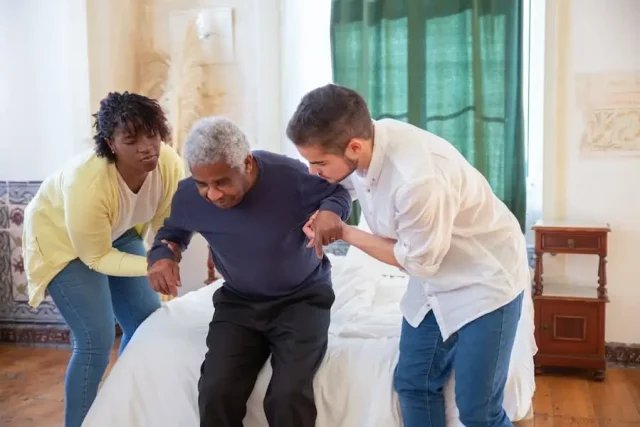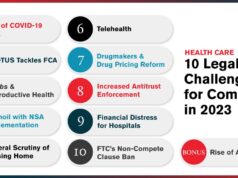To avoid surprises, ask questions before moving into a nursing home. For instance, do nursing homes take your social security check?
We’re in a society where thieves and tricksters keep devising means to steal from vulnerable individuals, such as seniors. Most of these tricksters have moved into nursing homes, closer to their potential targets.
The U.S. government has estimated that around 20,000 social security benefits recipients have lost over $33.5 million from January 2013 to May 2018. These criminals divert the funds to other accounts, making tracing difficult.
These devilish acts have to stop. People should stop targeting and using every opportunity to steal from vulnerable senior citizens.
Here’s what you need to know about nursing homes taking your social security check and more on social security you need to know.
Do Nursing Homes Take Your Social Security Check
Nursing homes can only take your social security check if you or your representative authorizes them. No law states that a nursing home can take your social security check. If they do, they act alone and may have a hidden agenda.
Only you, your conservators, or representatives have the right to authorize a nursing home to manage your social security fund on your behalf. But you have to pay for the home care anyway.
The law doesn’t state how you should pay nursing homes. The nursing home can ask the resident to send their social security payment to the house, which is the case for those receiving Medicaid Assistance in Connecticut.
On the other hand, a representative can receive the social security check on your behalf and pay the nursing home. The nurse can then ask for a personal fund account to deposit the personal needs allowance, which is $52.
How Different Nursing Home Facilities Can Affect Your Social Security Benefits
The crux of the matter is different nursing homes exist, and they affect social security benefits differently. Understanding how the various facilities affect your SSI (social security income) will enable you to make the best choice.
The main factor affecting your social security income is whether Medicaid covers more than half of your bills. Another thing you must understand is some nursing homes don’t accept Medicaid.
If you are in a nursing home that doesn’t accept Medicaid, you must pay the nursing home directly from your pocket or via social security. Let’s discuss how different homes can affect your social security.
Private nursing homes:
If you’re in a private nursing home or planning to send your loved one there, understand that many private homes don’t accept Medicaid.
In this case, nothing will happen to your social security income. It won’t reduce. But note that social security benefits are meant to help seniors overcome financial challenges.
They are not meant to make you rich. If you can afford a private nursing home, then you may not qualify or be eligible to receive social security benefits in the first place.
Public nursing homes that Medicaid doesn’t cover:
Note that if you’re in a public nursing home or medical facility that Medicaid covers, you’re automatically ineligible to get SSI benefits.
Nursing home care for spouses:
If your spouse moves into a nursing home but you don’t note that your SSI benefits will be affected.
If you were getting $1,191 monthly (full couple rate), your SSI benefits could reduce to $794 monthly for individuals.
Nursing homes that Medicaid covers:
Are you in a nursing home that Medicaid covers? If Medicaid covers over half of your care cost, note that your SSI benefit will become $30 monthly for individuals or $60 monthly for couples.
Note also that some states may let you keep this amount, while some will allow you to keep more.
Your social security income benefits will only reduce when you move to a care facility that provide inpatient care and won’t cover non-medical facilities costs. An example of non-medical facilities includes assisted living facilities.
Is It Legal For A Nursing Home To Refuse To Accept A Patient?
Here’s what you need to know. Nursing homes can reject a patient, but there must be compelling reasons. They can refuse a patient legally under the following circumstances.
1: The patient’s medical condition
The patient in question has a specific medical condition that the nursing home doesn’t have the equipment or personnel to handle. In a nutshell, the facility rejects the patient because it feels it can’t do a good job taking care of the patient because of the sensitivity of the person’s medical condition.
2: Nursing homes would struggle to care for the patient:
If a nursing home cannot meet a patient’s care needs because of a specific medical condition the patient has, then the nursing home can reject the patient on that ground.
The patient’s family should be happy that the nursing home opened up. They can now move their relatives to a care home that can do a better job.
3: Patient’s history of violence:
If a patient has a history of disruptive or violent behavior, the nursing home can reject such a patient.
The reason a nursing home may reject such a patient is not farfetched. They’re acting because they know having the patient around is unsafe for the other patients and staff in the facility.
Can Nursing Home Refuse A Patient Admission Based On Religion?
Religion is not a legal or moral ground to reject a patient’s admission to a care facility. Others include race and ethnicity.
States and the federal government have anti-discrimination laws, which nursing homes must follow strictly.
Will Nursing Homes Give Reasons For Refusing To Admit A Patient?
A nursing home can refuse to admit a patient. They have the legal backing to do so. However, they can only act under the circumstances we just finished discussing.
If a nursing home refuses to admit a patient, they are expected to express why they declined to the patient and relative. In addition, the nursing home has to refer the patients and their relatives to another facility that can provide the needed care.
What Advantages Do Nursing Homes Have?
Are you thinking of moving into a nursing home anytime soon? Or, do you have a relative you’re planning to send to a nursing home soon? Whatever the case may be, understanding the advantages and disadvantages will help you make an informed decision.
Here are the reasons nursing homes may be beneficial.
- Sending a relative to a nursing home will lessen the demand on family members. Everyone can face lives squarely instead of putting their lives on hold to care for their loved ones.
A Handy Tip: Most people have closed down their lucrative businesses and career to provide care for their parents or relatives who cannot help themselves. But if they had summoned the courage to send their relatives who need care to a nursing home, they would have had time to focus on their careers or business.
- Nursing home facilities are evaluated occasionally, with reports made available via Medicaid. So, you can access information about care facilities and choose the best and safest facility for your loved one.
- Nursing homes boast well-trained staff that can offer expert medical attention, including round-the-clock care.
- Nursing homes are usually packed with nutritionists and dieticians who ensure the patient is given the best nutrition to improve their health.
- Most senior citizens that are due for nursing homes because of their age and health condition crave contact. Nursing homes can provide an enabling environment, a sense of community, and social activities.
What Disadvantages Do Nursing Homes Have?
Here are the reasons most people don’t consider sending their relatives to nursing homes.
- Nursing homes are expensive. The recent median nationwide cost for a private room in a nursing home is $9,000 per month. In a year, we’re talking about $108,000. So, most people cannot afford a nursing home.
- You may have to travel long distances to visit your relative in a nursing home if the facility is far from your residence.
- Studies show that around 90% of nursing homes are likely understaffed, increasing the likelihood of accidents. There are nursing homes that provide superior care, though. But you must be extremely careful and intelligent to make the right choice.
Condition
So, do nursing homes take your social security check? No law states that your social security check must go to the nursing home since you’re there. Your social security benefits belong to you.
Therefore, you can ask anyone to manage your social security funds. You can ask your conservators, representatives, or even the nursing home. But if you didn’t authorize the nursing home to manage your finances, it’s illegal for them to do so.














